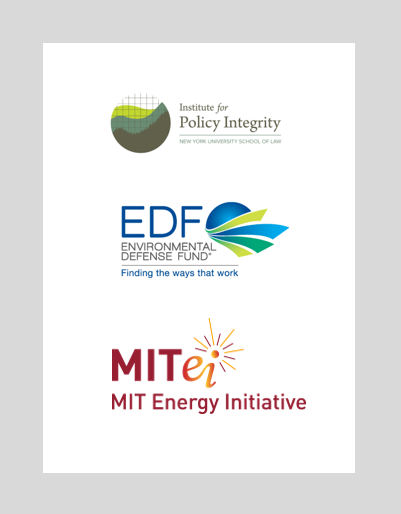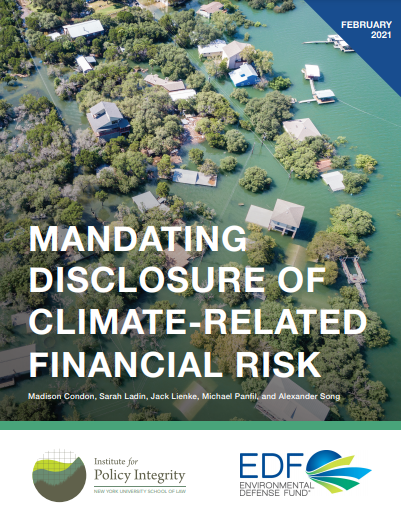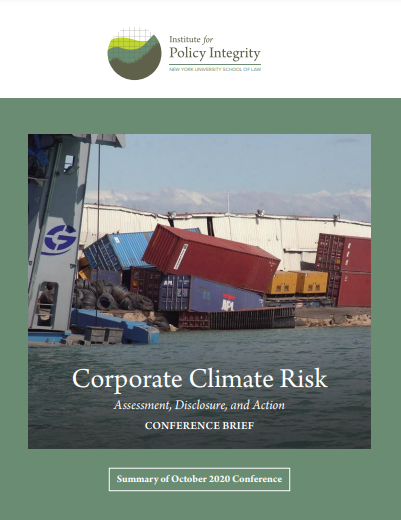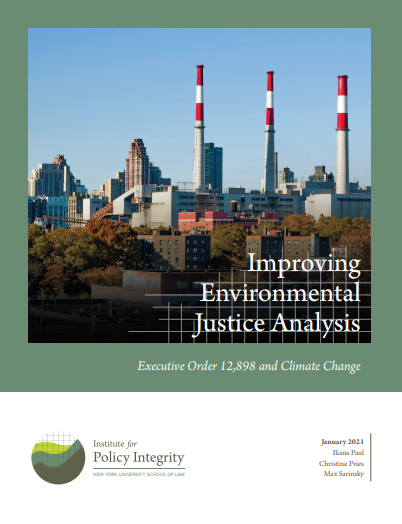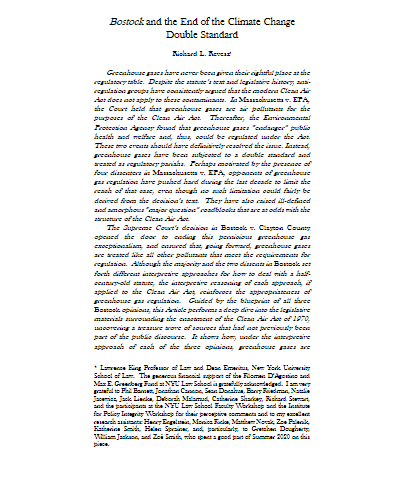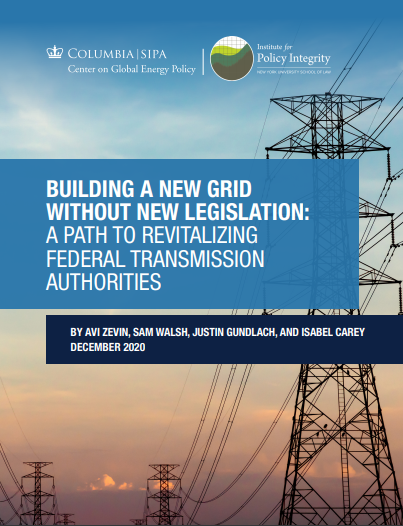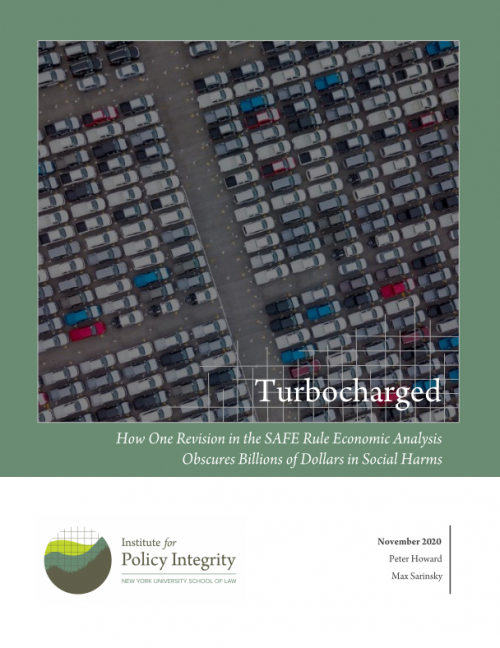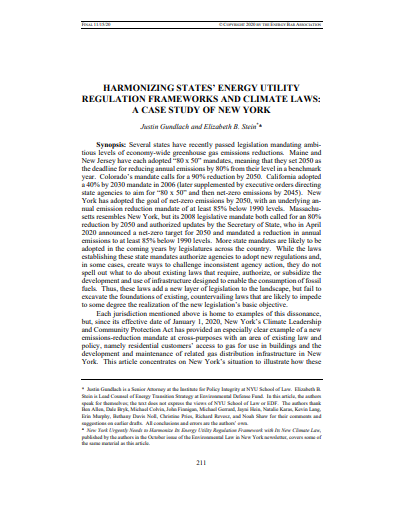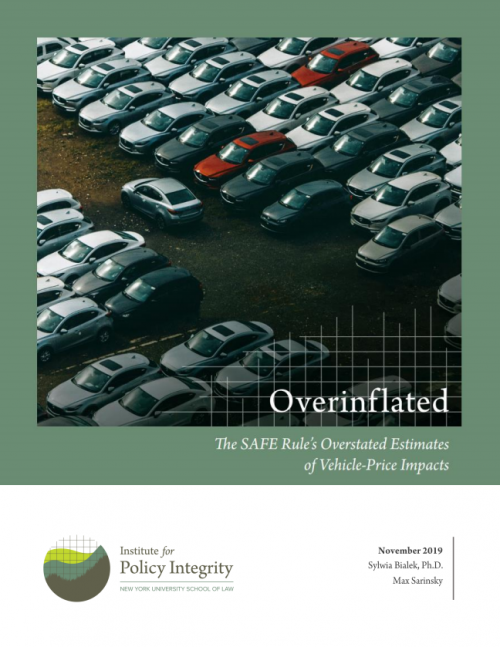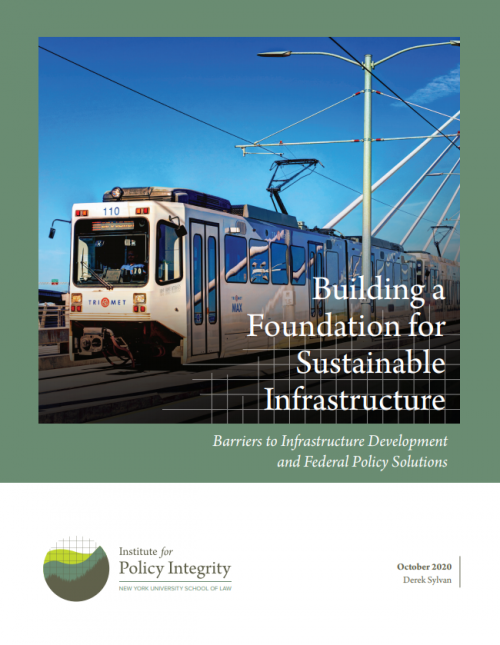-
Rate Design and Distributed Energy Resource Integration: Impacts on the Environment and Distribution System Costs
This project looks at the effects of different retail tariff designs on the deployment of distributed energy resource (DERs), and their subsequent effect on pollution, electric system costs, and customer bills. We use smart-meter data and techno-economic models to simulate the effects of more granular and cost-reflective tariff designs on DER investment and use.
This project is supported by the Alfred P. Sloan Foundation, and is a collaboration between the Institute for Policy Integrity, Environmental Defense Fund, and the MIT Energy Initiative.
-
Mandating Disclosure of Climate-Related Financial Risk
Climate change presents grave risk across the U.S. economy, including to corporations, their investors, the markets in which they operate, and the American public at large. Unlike other financial risks, however, climate risk is not routinely disclosed to the public. This report, authored by Policy Integrity and the Environmental Defense Fund, urges the Securities and Exchange Commission to issue new, mandatory disclosure rules focused on climate risk.
-
Corporate Climate Risk: Assessment, Disclosure, and Action
Conference Brief
On October 2, 2020, the Institute for Policy Integrity and the Volatility and Risk Institute at NYU Stern School of Business convened a conference bringing together investors, companies, researchers, and regulators to discuss climate-related financial risks and identify opportunities to better assess, report, and act on them. This brief summarizes some of the major points of discussion from the conference, which featured different perspectives on various policy, economic, and legal issues.
-
Improving Environmental Justice Analysis
Executive Order 12,898 and Climate Change
Distributional and equity concerns have typically received short shrift in federal administrative decisionmaking, particularly with regard to actions with climate-change impacts. This report aims to aid advocates and policymakers in meaningfully addressing the disparate climate impacts of federal actions.
-
Bostock and the End of the Climate Change Double Standard
Guided by the blueprint of all three Bostock opinions, this article, published in the Columbia Journal of Environmental Law, performs a deep dive into the legislative materials surrounding the enactment of the Clean Air Act of 1970, uncovering a treasure trove of sources that had not previously been part of the public discourse. It shows how, under the interpretive approach of each of the three opinions, greenhouse gases are unquestionably pollutants for the purposes of the Clean Air Act. Because the approaches in the majority and dissents in Bostock—and thus a majority of the current Court—all point in the same direction, the era of greenhouse gas exceptionalism should now be over.
-
Building a New Grid Without New Legislation
A Path to Revitalizing Federal Transmission Authorities
In the absence of legislation, critical long-distance transmission can be developed by applying existing federal legal authorities. A number of important regulatory and commercial measures have been proposed, including streamlining transmission planning, upgrading existing transmission system components, putting transmission lines underground, and using existing rights-of-way from highways and railroads. Even if these solutions are adopted, however, state siting requirements may prove an important obstacle to developing an efficient, national transmission grid. So, this paper examines legal authorities already available to the Department of Energy and the Federal Energy Regulatory Commission to develop the interstate transmission capacity crucial to the energy transition.
-
Turbocharged
How One Revision in the SAFE Rule Economic Analysis Obscures Billions of Dollars in Social Harms
This report is part of a series that documents how the assumptions underlying The Safer Affordable Fuel Efficient (SAFE) Vehicles Final Rule for Model Years 2021–2026 Passenger Cars and Light Trucks are skewed to make the rule look less harmful than it actually is. In this report, we focus on the rule’s estimate of vehicle sale price elasticity, which substantially inflates the rollback’s effect on new vehicle purchases.
-
Harmonizing States’ Energy Utility Regulation Frameworks and Climate Laws
A Case Study of New York
Unless the institutional framework and laws pertaining to fossil fuels are modified appropriately, decarbonization efforts will likely be stymied by confusion and related opportunities for opposition. This article, published in the Energy Law Journal, aims to start a wider conversation about the process of conforming existing energy law with novel, climate-oriented legislation. We concentrate on New York’s situation to illustrate how these tensions can manifest and what might be done to address them.
-
Overinflated
The SAFE Rule’s Overstated Estimates of Vehicle-Price Impacts
This report is part of a series that documents how the assumptions underlying The Safer Affordable Fuel Efficient (SAFE) Vehicles Final Rule for Model Years 2021–2026 Passenger Cars and Light Trucks are skewed to make the rule look less harmful than it actually is. In the SAFE Rule, the Environmental Protection Agency and the National Highway Traffic Safety Administration have significantly rolled back the greenhouse gas emission and fuel economy standards for light vehicles established under the Obama Administration. This report highlights three critical problems in the agencies’ assumptions about vehicle prices.
-
Building a Foundation for Sustainable Infrastructure
Barriers to Infrastructure Development and Federal Policy Solutions
Most categories of American infrastructure—from transportation and water systems to public school buildings and electricity meters—are in dire need of modernization, and climate change is compounding this challenge. Our report provides policy recommendations at each stage of the infrastructure lifecycle, from project planning and analysis, through financing, construction, and maintenance. We explain how a realigned approach to infrastructure can boost the economy while addressing threats from climate change and prioritizing social equity goals.
Viewing recent projects in Publications

